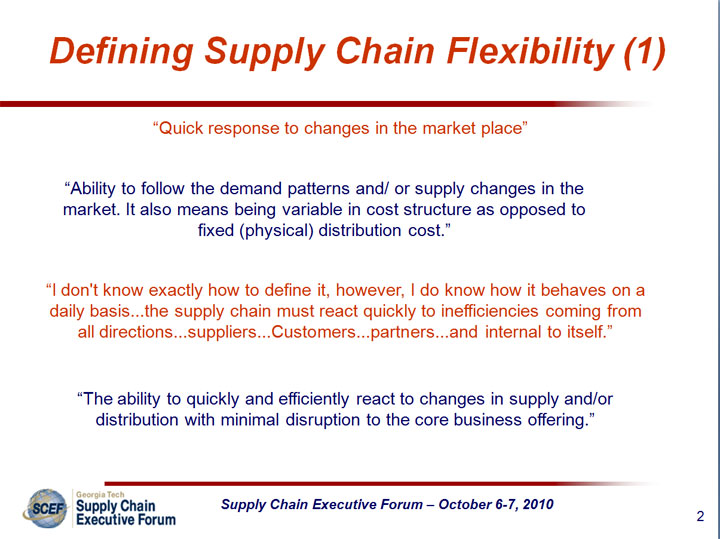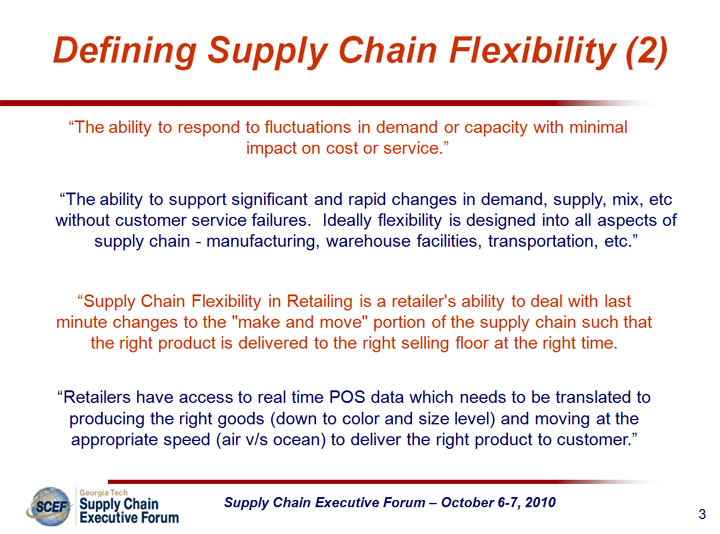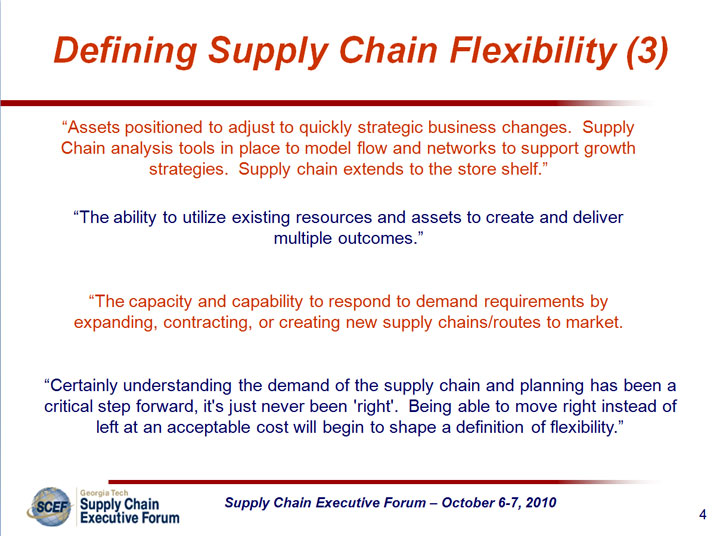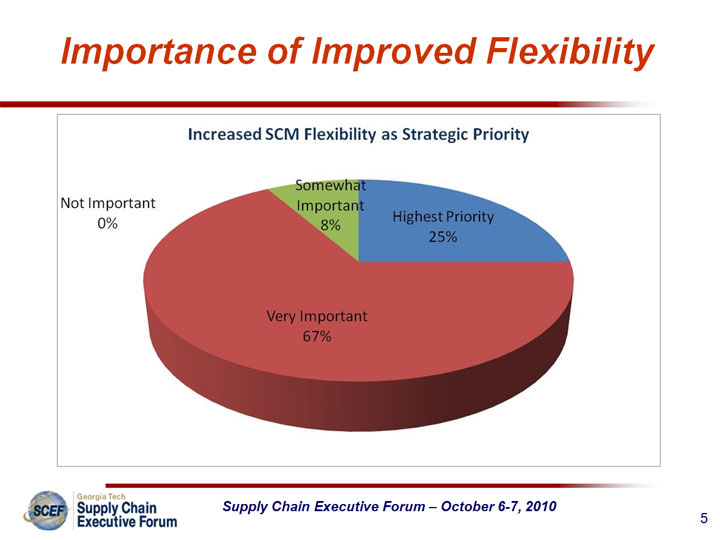|
In October, SCDiest Editor Dan Gilmore helped Dr.John Langley with the Georgia Tech Supply Chain Executive Fourm, where the theme of the Fall meeting was Supply Chain Flexibility. (Dr. Langley has since moved to Penn State; See
Dr. John Langley, one of the Supply Chain Profession's Most Well-Known Academics, Leaves Georgia Tech for Penn State University.)
To support the October meeting, SCDigest created a survey instrument on supply chain flexibility that about 40 primarily executive members of the Forum, across a wide range of industries, completed for the event.
A summary of the results of the brief survey are presented in the slide images below.
The survey asked participants to respond to the following questions:
1. An open-ended definition of supply chain flexibility
2. How important improving flexibility is at their companies in terms of supply chain priorities
3. What business needs are causing the need for greater SCM flexibility
4. The barriers to greater flexibility
5. Whether short term or long term flexibility was more important
6. If the company attempted to measure its supply chain flexibility
We hope you find the responses as interesting as we did.

Highlights of some of the responses to the open-ended question asking participants
to define supply chain flexibility are shown in the following three slides.



As shown in the slide below, improving flexibility is of very high importance to most companies.

(Supply Chain Trends and Issues Article - Continued Below)
|